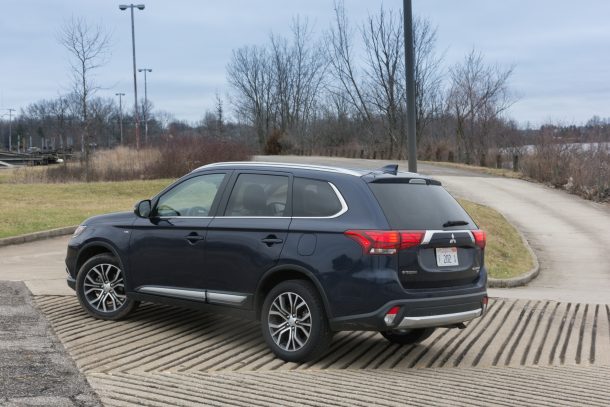#BrandImage
QOTD: Are You Part of the Team?
“If you’re one of us, you’ll take a bite.”
If that quote soars over your head, I don’t want to know you. The infamous Seinfeld incident in which an eager-to-impress George reveals to his colleagues that he’s not a team player (at the same time sparing himself from becoming violently ill), riffs on the homogeneity of upper office environments. The forced social collectivization of a corporate in-group.
Climb the ladder high enough and you’ll wear the same brands, enjoy the same timepieces, drink the same booze, and golf the same courses. Or so the perhaps dated view of these things goes. Now, what about cars?
It'll Take More Than a Dealership Makeover to Propel Mitsubishi Upmarket
At the end of the day, brand perception comes down to product, but no one likes visiting a dingy dealership. As the once-endangered Mitsubishi awaits a slew of lucrative new products (crafted with Nissan’s help), it figures it may as well begin sprucing up its dealer presence — not just in the U.S., but worldwide.
While the automaker’s U.S. division sits back and basks in the glow of June’s 46.2 percent year-over-year sale increase, head office is busy planning 5,000 renovations.
No Fixed Abode: Plate Tectonics of the Prestige Drift
It’s June, which means it’s the time of year for my son to visit his grandfather in South Carolina and spend a week at golf camp. Sometimes I have to spend the week working, sometimes I spent it traveling, and sometimes I get to spend it hanging out with my dad and his friends.
Most of them are cast from the same group of molds: either self-made or with only minor family advantages, a long history of executive positions or highly remunerative small business ownership, more millions left in the bank than they have years left in the tank. They’re not interested in art or literature, they have a casual and hilarious disrespect for modern social ideas, they maintain a sort of gruff good humor about everything from heart attacks to coastal hurricanes. We will not see their like again, which is kind of a shame.
Yesterday one of them came over to say hello, meet the grandchildren, and to ask me a couple of questions about his next vehicle purchase. I long ago figured out that these fellows don’t necessarily want my authentic opinion regarding the merits of the SL65 or the Continental GT. Rather, they want me to nod approvingly at whatever they’ve already decided to buy, at which point we can have a nice lunch and engage in some mutual appreciation of our good fortune in life, regardless of how unevenly said fortune is distributed.
This fellow was different. He came prepared: with notes, impressions, questions. He had hard financial limits in mind, which is vanishingly rare among a class of Baby Boomers who no longer bother to count pennies or Krugerrands. Most importantly, he gave me something to think about long after he’d left.


















Recent Comments